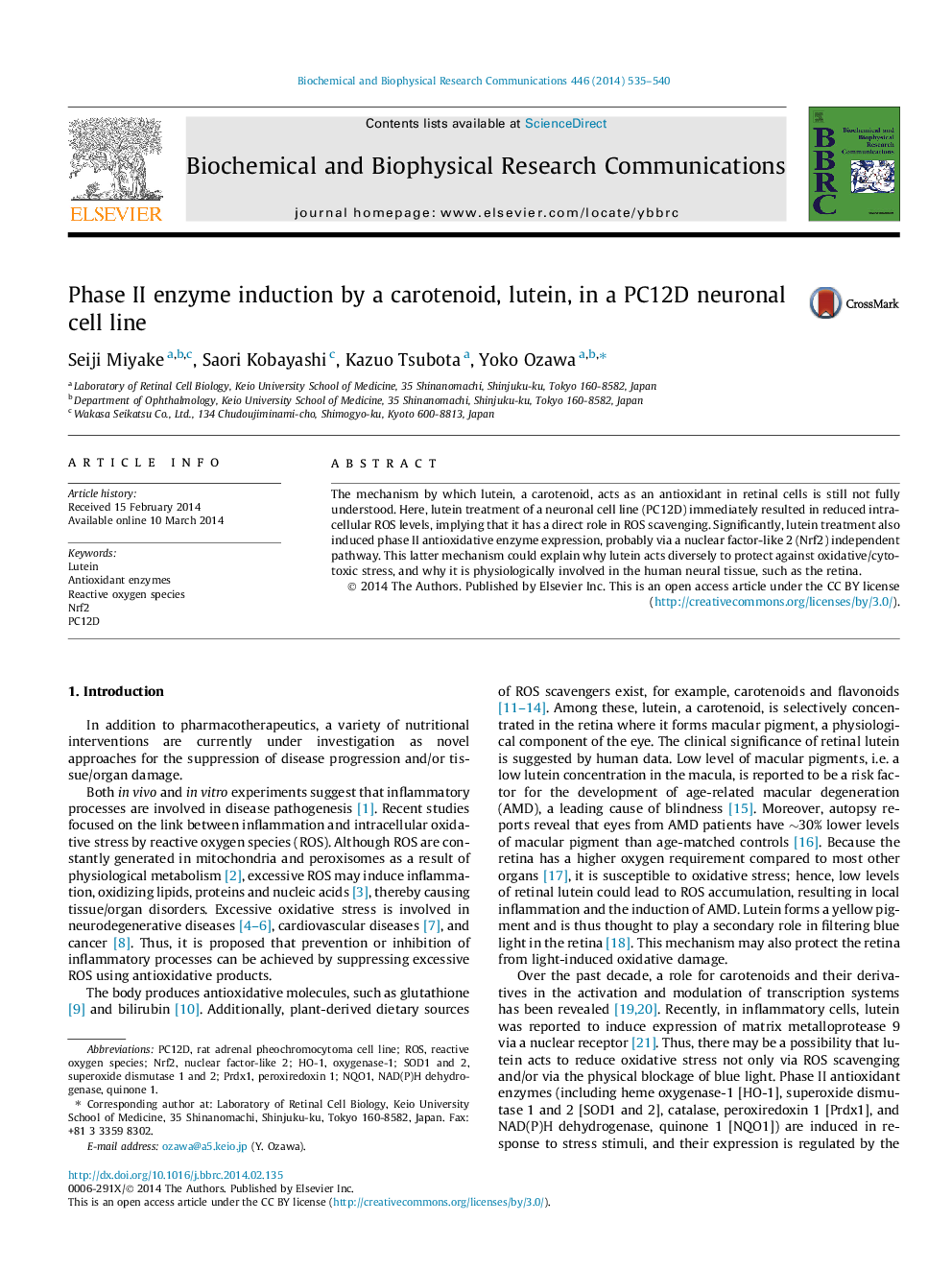| Article ID | Journal | Published Year | Pages | File Type |
|---|---|---|---|---|
| 10755772 | Biochemical and Biophysical Research Communications | 2014 | 6 Pages |
Abstract
The mechanism by which lutein, a carotenoid, acts as an antioxidant in retinal cells is still not fully understood. Here, lutein treatment of a neuronal cell line (PC12D) immediately resulted in reduced intracellular ROS levels, implying that it has a direct role in ROS scavenging. Significantly, lutein treatment also induced phase II antioxidative enzyme expression, probably via a nuclear factor-like 2 (Nrf2) independent pathway. This latter mechanism could explain why lutein acts diversely to protect against oxidative/cytotoxic stress, and why it is physiologically involved in the human neural tissue, such as the retina.
Keywords
Related Topics
Life Sciences
Biochemistry, Genetics and Molecular Biology
Biochemistry
Authors
Seiji Miyake, Saori Kobayashi, Kazuo Tsubota, Yoko Ozawa,
